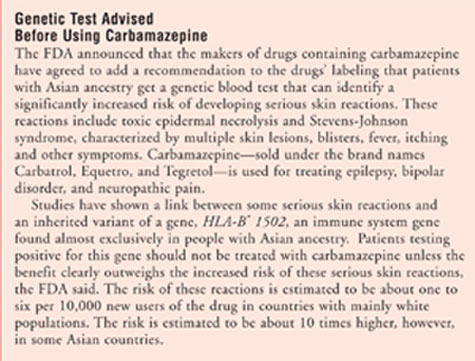US Pharm.
2008;33(1):48.
Prison Sentences for Women
Who Claimed ALS Cure
The FDA Office of
Criminal Investigations today announced that a New Jersey woman has been
sentenced to 33 months in prison for falsely claiming that she could cure
amyotrophic lateral sclerosis (ALS), or "Lou Gehrig's disease." Elizabeth
Lerner, a.k.a. Elizabeth Cooperman, of Egg Harbor City, New Jersey, was
sentenced last month for defrauding two patients with ALS and their families.
She was also ordered to pay $35,390 in restitution to the victims of the
scheme and a criminal fine of $7,500.
Lerner and her co-conspirator,
Charlene C. DeMarco, were convicted in December 2006 of all charges contained
in an 11-count federal indictment. DeMarco was sentenced in September 2007 to
57 months in prison, ordered to pay $32,190 in restitution to victims of the
scam, and to pay a fine of $7,500.
Investigators found that from
October 2002 until November 2004, Lerner and DeMarco defrauded patients with
ALS and their families by claiming they could treat the disease with stem cell
therapy, even though they knew they could not.

New OTC Contraceptive
Warning
The FDA issued a
final rule requiring that manufacturers of OTC stand-alone vaginal
contraceptive and spermicidal products with the chemical ingredient nonoxynol
9 (N9) include a warning that the chemical N9 does not provide protection
against infection from HIV or other sexually transmitted diseases (STDs).
Stand-alone spermicides include gels, foams, films, or inserts containing N9
that are used by themselves for contraception.
Following a 2003 clinical
trial in Africa and Thailand that showed women using a contraceptive gel with
N9 were not protected against HIV and other STDs and were at higher risk for
HIV infection than women using a placebo gel, FDA proposed new warning
statements. This and other studies have shown that use of products containing
N9 cause vaginal and rectal irritation, which can heighten the chance of
contracting HIV from an infected partner.
Pump Recall
Cardinal Health
announced a voluntary, worldwide recall for its Alaris Pump module model 8100
(formerly known as Medley Pump module) as the result of misassembled occluder
springs. This could lead to overinfusion, which could result in serious health
consequences or death. The company notified customers of the recall for pumps
that were shipped prior to September 27, 2007.
The pumps are used for
delivering fluids, medications, blood and blood products, and there is no
warning or notification of an overinfusion. Cardinal Health received one
report of an injury and two reports of patient deaths associated with the use
of the pump, however the deaths could not be confirmed by the respective
hospitals or Cardinal Health as definitively caused by this problem.
To comment on this article, contact
editor@uspharmacist.com.






